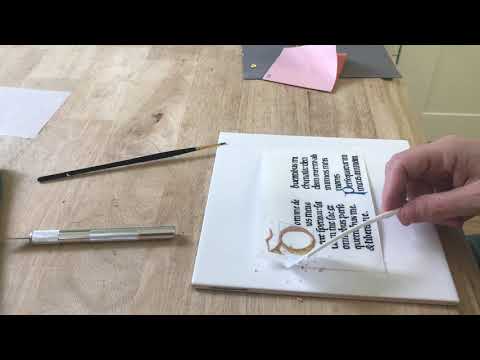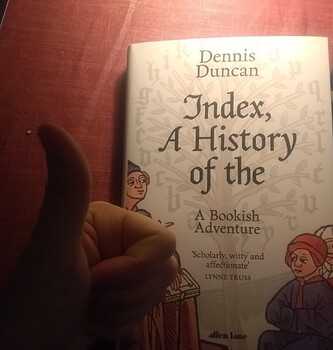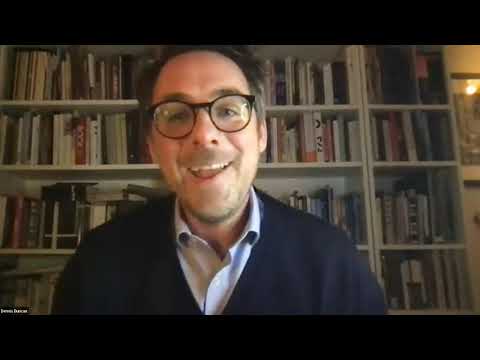For folk interested in the origins to taggery and categories on the web it is useful to look to their prior history in a fun way. Tags and categories are just indices . … This is a great new book about the arrival of indices … https://www.amazon.co.uk/gp/product/0241374235?tag=prhmarketing2552-21
Update: I’m about half way through this book. It is very interesting, in gentle, fun, style.
But why is it interesting? Why is it relevant? Well, it clearly illustrates the origins of two basic strategies on “indexing” and their strengths and weaknesses … essentially …
- the “concordance” (mapping every significant word to an index)
and
- the “subject” index (a “take”, an “overview” that is conceptual)
IMO it is very helpful to understand what we do now on the web actually dates back hundreds of years.
Regarding normal style taggery in TW specifically, it is a form of “folksonomy”.
Interesting things.
Funnily enough, I have long had an interest in indexers and indexing (and have Duncan’s book in my unread pile).
It started 25 years ago when I read a quote from an indexer to the effect that if they picked up a book that had been indexed by the author themselves it would be immediately obvious due to the poor quality. I understood it to be a matter of the author’s hubris coming through, where they would end up indexing the material that they like or are proud of, instead of trying to make the index useful.
I think we can see the same thing in the field of “personal knowledge management”. The easy part is typing a stream of stuff into these systems; the hard part is indexing it usefully so that it can be found again. And perhaps the insight from indexers is that the person taking notes is not the best person to be indexing those notes.
And so hence, perhaps, the way that we expect the tools that we use to do the indexing automatically (or at least to make it happen as a byproduct of typing the material).
It is interesting! On the modern web there has grown the idea that the solo writer is best arbiter of classifying (#taggery in TW) what they themselves wrote. I’m not sure that is right. One needs a friend, perhaps, to look again?
Best wishes, TT
I suspect this is a secret fetish quite a few TiddlyWikians have. I picked up Mortimer Adler’s A Guidebook to Learning some years back and enjoyed it. The book is IMO mistitled and is about different ways to categorize and organize knowledge, looking back historically. If these things turn you on then you might want to check it out. Adler was the driving force behind Encyclopaedia Britannica so he knows a thing or two about indexing and such things.
There is a lot of truth in that, yet new dynamics occur when there is more than one brain involved, The problem and solution, is “shared standards”, not those in a manual but those that “encourage consistent behaviour” within the “data model” and interface in use. Of course then you need to understand how two (or more) different brains work. To do it well, that is a “Wicked problem”.
Agreed, One method is to reduce the complexity of indexing by deferring to “search”, this is something tiddlywiki does well, if you can always find something, need it be ever indexed?, well yes it does, but more to provide an alternate, curated or “canned/pre-searched” method. Even the science of search needs work still.
In the pursuit of such “personal knowledge management” I am confident that a development of what I may call “reflective analytics” (that is, as yet, not fully explored).
- “Reflective analytics” is the use of analytics not the analytics of advertising and global search engines but analytics about our usage of our own “knowledge”, reflected back to us, capture how do we do things, measure how do we do things well and then have the successful use of indexes and search reinforced.
A example is capturing a tree of our activity when undertaking research tasks in our knowledge repository. Which tiddlers did we view, which links did we click, what search terms, got us to which tiddler, and how often did we.
I hope the “brief comments above” of mine are still meaningful to you all (despite the brevity), these are big and very interesting subjects, that may exist at the “bleeding edge” of Knowledge and Information Management. The question is can we locate the people, the books, thesis and PHD’s that are working at the “leading edge”.
The beauty of TiddlyWiki is not only that it helps us discover which questions we should be asking, but gives us the platform on which to model possible answers.
One needs a friend , perhaps, to look again. 
As you well know, my friend 
It is a shame there is no re-tweeting here.
Well “wicked” my wiki friend. I think there is a basic, ongoing, tension between “folksonomy” and “standards”.
Crudely speaking, the divergence of self-created tag nameology from (ideated) universal terms for categories is, IMO, an ongoing, unsolved, perhaps insoluble, conundrum.
Thoughts
TT
I suspect this is a secret fetish quite a few TiddlyWikians have. I picked up Mortimer Adler’s A Guidebook to Learning some years back and enjoyed it.
Dear TiddlyWikian, you would know.
I looked a bit at your Adler. It is most addling–in a good way. I will read it now.
Best wishes, TT
I looked a bit at your Adler. It is most addling–in a good way. I will read it now.
LOL! I realized the US amazon site has more reviews for anyone who, like me, reads up a lot about a book before getting it.
By the way, the other day I ordered the book you recommend in this thread. Will be a nice read over Christmas. Thanks for recommendation.
So, it is available for you brits on Amazon Kindle, but when I open the 'Murica amazon.com it says it’s a pre-order not available until mid-February…
They must be busy taking the u’s out of words like colour, and the s’ off of math.
@DaveGifford, I thought it might interest you particularly because of the Biblical aspects. They have been incredibly important in the evolution of the modern index.
Just a comment
TT
Yes, maybe that is why I am so drawn to Tiddlywiki. The Bible benefits from being cross-indexed in quite a number of ways: by book and passage, by chronology, by topics, by literary features, by grammar, etc.
Update:
1 — The chapter on Page Numbering (3) is very interesting. Mainly because that on the normal net now it rarely exists. Yet pagination, arbitrary though it is, proved, historically, very useful. It is a downside on online. Yeah we have “pages” online, but they are not numbered.
2 — One thing the book avoids is discussion of Roget’s Thesaurus (RT), and similar approaches for indexing. RT type thinking is/was fundamental to AI; and where computer power has proved good quite a lot. In TW you see it crop up in aliasing tools. But the rationale is quite difficult to explain as RT itself probes the way meaning (aka the semantic) works.
[P.S. The fact that the word “alias” is difficult to find a clear uniform definition of is indicative of the issue in (2).]
Comments
TT
Got mine just today!
I hope you enjoy it as much as I am. It is not just informative in a useful way for us, it is written in a very good fun way too, imo.
Buona lettura durante il periodo natalizio mia caro.
TT
Update: For users interested in the history of indexing—but not wanting to buy/read the book—here is a reasonable 1hr video overview of the main relevant points explained by the author …
TT
So, it is available for you brits on Amazon Kindle, but when I open the 'Murica amazon.com it says it’s a pre-order not available until mid-February…
I guess they don’t expect Muricans to read over Christmas? Not just the full flesh and blood book, but the ebook as well! On Audible, supposedly it used to be possible to temporarily change your address to something local to the country where a title was available, buy it with your account credits, download it, and then change your address back. Probably riskier with Amazon.
That’s a nice cover. You can always judge a book by its cover. The other version looks like it was created by a publication bot or a mail room intern.


